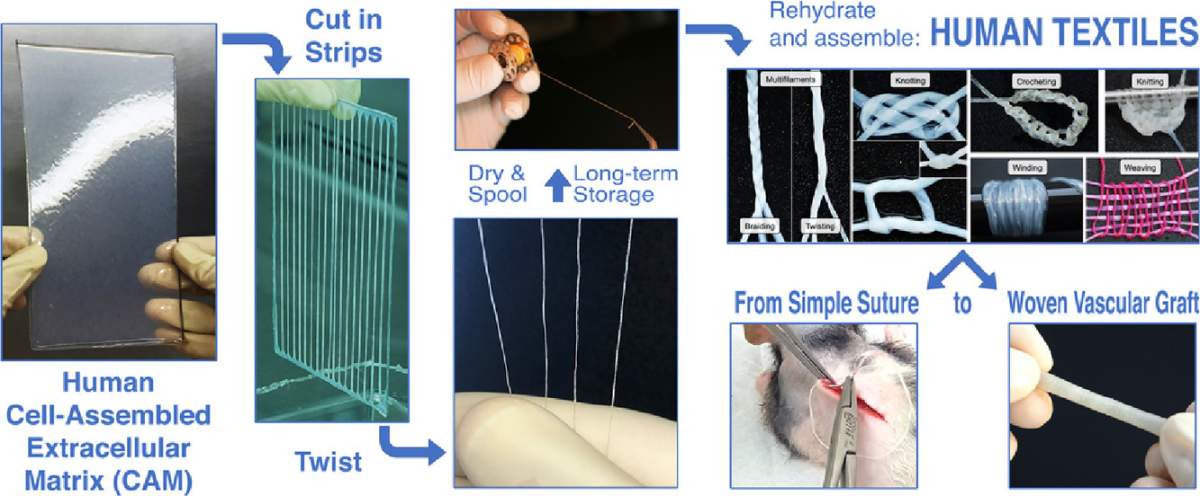Thread is out and skin is in, according to the latest (and weirdest) in medical textiles from France.

Researchers say they’ve successfully created yarn from human skin cells in an achievement that could one day change how doctors stitch up wounds and transplant organs.
The notion of “skin yarn” might send shivers up some people’s spines, but it could be a major win for doctors at the French National Institute of Health and Medical Research, who are hoping it will eventually become a common technique.
In other words, it’s actually not weird.
It could also give a few hardcore knitting hobbyists a new line of work, judging from examples included in the journal Acta Biomaterialia.
“This material can be used as a simple suture to close a wound or can be assembled into fully biological, human, tissue-engineered vascular grafts that have high mechanical strength and are implantable,” the paper says.
Researchers grew large, flat sheets of skin, then cut it into long strips and braided it into a yarn-like material for surgical use. The skin yarn can be dried out for storage and rehydrated before it’s knit together, according to the paper.

Get weekly health news
“With the yarn, any textile approach is feasible: knitting, braiding, weaving, even crocheting,” lead researcher Nicholas L’Heureux told the New Scientist.
Nothing weird at all about that.
Essentially, the skin yarn would allow doctors to give a person a stitch or implant without the need to go back and remove the stitching thread at a later date. It also reduces the risk of a patient’s immune system freaking out and trying to reject a foreign implant, because that implant will be made from familiar skin.
Researchers have only tested the yarn with rats and sheep at this point.
The skin yarn creators also previously created artificial blood vessels using sheets of rolled-up biomaterial.
It’s important science.
It’s also pretty weird, right?





Comments
Want to discuss? Please read our Commenting Policy first.